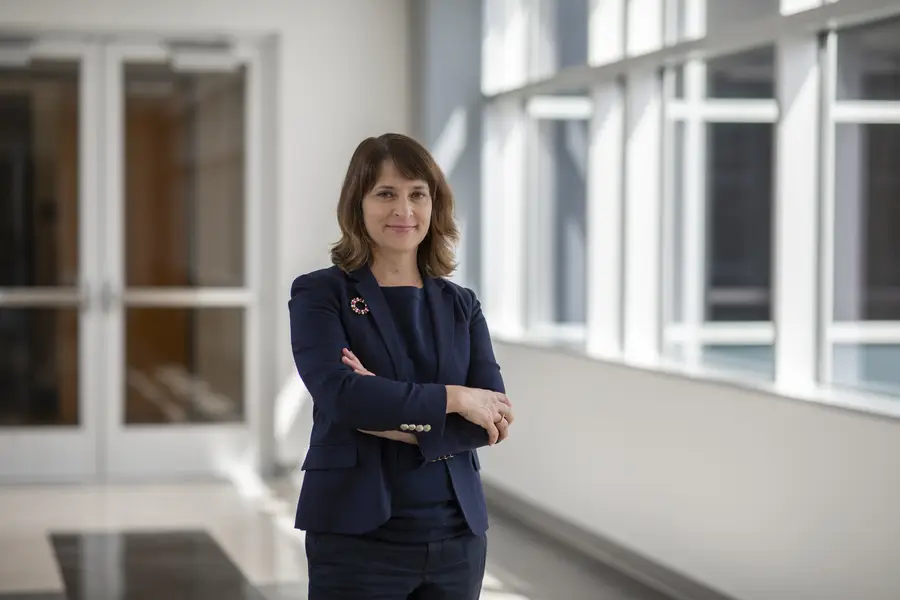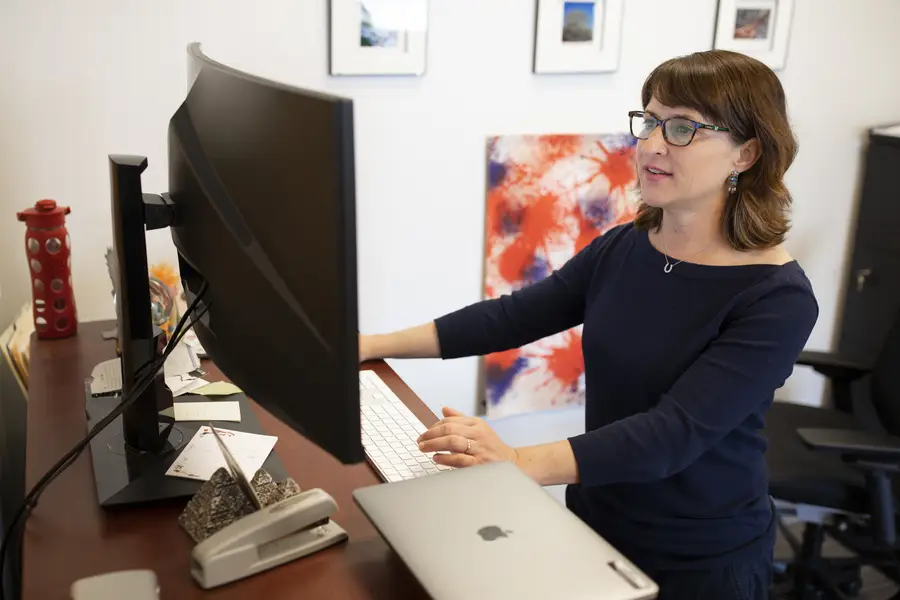Development Without Borders
Sara Lawrence helps communities and countries around the globe bring innovation to their economic development programs
Sara Lawrence helps communities and countries around the globe bring innovation to their economic development programs

For those who make a career in development, there is often a distinct separation of those who do international development and those who focus on domestic development work.
RTI’s Sara Lawrence characterizes that as a “false dichotomy,” opting for her work in innovation and economic development to encompass projects inside and outside the US.
From Palestine to Pittsburgh, Lawrence has used her expertise to help communities, cities and countries formulate strategies and launch programs that help create job diversity and bring science, technology and innovation into their economic development programs.
“There are incredible people and cultures in our own backyards who we can sometimes overlook for the allure of also doing things far away that may seem more adventurous,” said Lawrence, the program director for Innovation-Led Economic Development at RTI.

One of the largest projects Lawrence has taken on is advising developers in the West Bank who are building Rawabi, the first planned city in the West Bank built by Palestinians. Rawabi was featured by 60 Minutes in late 2019.
Lawrence worked with the Rawabi developers to create a strategy to build more than a bedroom community—connecting the start-up community with Palestinian businesses to build a vibrant employment hub for young professionals.
“When we were working on their economic development strategy, Rawabi was a desert—there was nothing there,” she added “Now, it is a sprawling city. That is the most gratifying part of the work—seeing your clients taking your ideas and putting them into practice.”
Closer to home, in Pittsburgh, Lawrence has worked with a foundation that invested millions of dollars helping start-ups and technology-based companies to fill the economic void left when the manufacturing sector declined.
“My projects are very focused on providing independent, objective data to help our clients make quick-turnaround decisions,” she said. “I have probably interviewed more than 100 people in Pittsburgh. In all of our projects we combine solid quantitative data analysis with a range of interviews to help to shape programs to have more impact on a community’s future. Within that context, you get to see these cities just take off—it is really rewarding to have had an insider view on all of the tremendous work people do to make these economic opportunities happen.”
She is also working on analyzing economic development for projects in Thailand, Utah and in North Carolina. In North Carolina, she is doing work to create a blueprint for a knowledge corridor from Greensboro to Greenville—identifying industry sectors that show potential for high growth through technology and innovation.
From her vantage point working with many of the world’s most innovative economic development initiatives, Lawrence is seeing a new trend emerging along with the highly concentrated economic centers growing in Boston, Seattle, and San Francisco.
“We are creating these highly concentrated growth centers, and our second-tier centers and rural areas are losing out,” she noted. “This disconnect between growth and where there is no growth will continue to get must worse.
Those who live in rural areas will get left behind if they are not dialed into these growth engines with the stable jobs and income they provide. This will lead to even more stratification in our society.”
Whether she is working inside or outside of the U.S. Lawrence embraces the data collection part of her job—interviewing people and gaining insight into their unique challenges.
“I love the energy from working in locations coming out of complicated histories of economic decline or conflict but have leadership trying to harness opportunities to lift their country and population into new development trajectories,” she added. “In El Salvador, you have people at the gates of the university going to class or to teach worried about gang violence. But they haven’t given up hope in creating opportunities for themselves and their children. In the U.S., employers and economic developers strive to train or retrain workers who have been displaced by economic shifts and struggle to find a foothold into new kinds of job opportunities. Despite these kinds of tough circumstances, wherever we work, it’s awe-inspiring to work with people devoted to finding breakthroughs for a more stable society and economy that provides decent jobs. We find versions of this everywhere we go.”